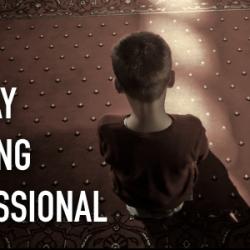 Summer break is here and it’s time to play, but do you really know how? Many adults, it seems, have distanced themselves from any kind of meaningful play. In his book Play, Dr. Stuart Brown says that when we lose are connection to play, we pay a high price. In fact, Brown says, “The opposite of play is not work—the opposite of play is depression.” (p.126) Brown lists what he calls the seven properties of play. When play is happening, all or most of these seven things are firing.
Summer break is here and it’s time to play, but do you really know how? Many adults, it seems, have distanced themselves from any kind of meaningful play. In his book Play, Dr. Stuart Brown says that when we lose are connection to play, we pay a high price. In fact, Brown says, “The opposite of play is not work—the opposite of play is depression.” (p.126) Brown lists what he calls the seven properties of play. When play is happening, all or most of these seven things are firing.
Play is Apparently Purposeless
Play has no strictly essential purpose for human survival. Play does not get you food, money, or shelter. It’s not the play has no purpose. It’s that the purpose of play is not immediately apparent. It’s not until people lack any significant kind of play in their lives that we begin to see how important it is.
Play is Voluntary
Play is not required by duty. It cannot be undertaken by compulsion. Play has to be entered into freely. We’ve all known the one hold-out who is forced to play a game but will not “play” freely. They tank the experience for everyone else. It’s a protective measure against the vulnerability of play.
Play has an Inherent Attraction
We naturally want to play. What constitutes play for me, may not be play for you. Play is what feels good, or fun, or stimulating for you. Because we love to do it, play is a cure for boredom.
Play involves a Freedom from Time
When we are involved in play we loose track of time. We are so present to the moment that time often seems to fly, or even cease to exist. Time doesn’t matter so much when we play because we are too focused on the activities of the present moment.
Play involves a Diminished Consciousness of Self
During play we stop thinking about the fact that we are thinking. Hence, we stop caring about what we look like when we play. We stop posing and attempting to control others’ opinions about us. We are not thinking about ourselves at all. In fact, when we play we are able to try on different selves, or aspects of our own selfhood.
Play involves Improvisational Potential
Play allows us the space to improvise, imagine, and follow those new inclinations to see what happens. Through play we stumble onto new (to us), patterns of thinking, feeling, and acting in the world. These new patterns offer us new ways of being and connecting with other people.
Play produces Continuation Desire
Play makes us want to keep on playing. We don’t want it to end. We will often improvise or bend the rules in order to keep on playing. You know that you are involved in play when you are genuinely unhappy to see it come to an end.

















